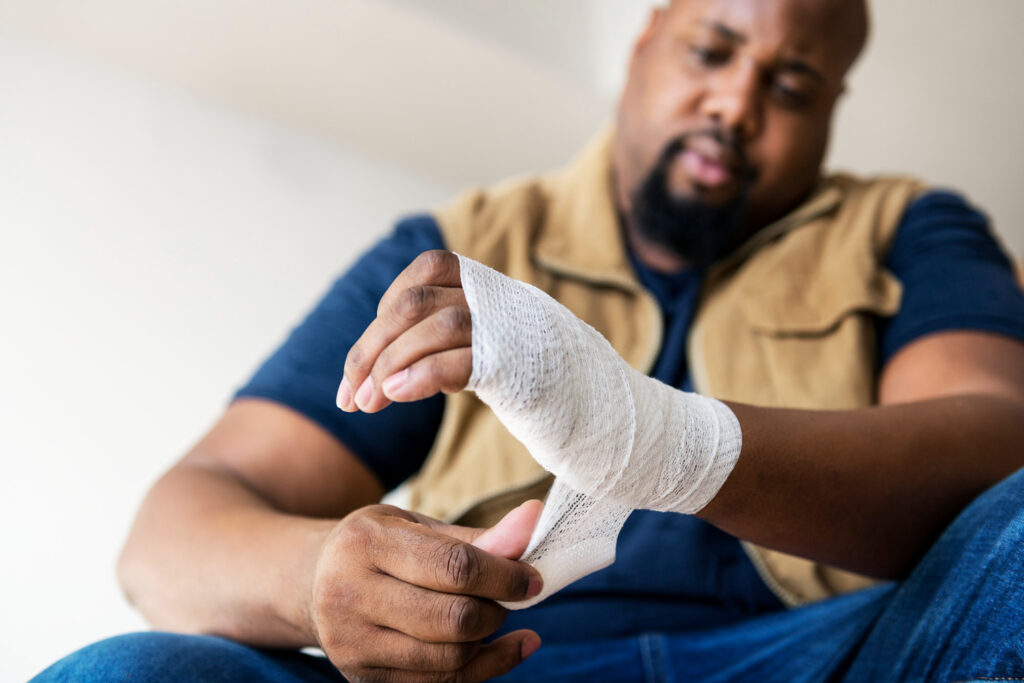Mistakes To Avoid After A Work Injury

Experiencing a work injury can be a stressful and challenging ordeal for any worker. In the aftermath of such an incident, it’s essential to navigate the situation carefully to protect your rights and ensure you receive the support and compensation you deserve. Unfortunately, there are common mistakes that injured workers often make that can jeopardize their claims or delay their recovery process. In this article, we’ll outline some crucial mistakes to avoid after a work injury to help you navigate the process more effectively.
Table of Contents
- 1. Failing to Report the Injury Promptly
- 2. Not Seeking Medical Attention
- 3. Failing to Follow Doctor’s Orders
- 4. Not Keeping Detailed Records
- 5. Discussing Your Case with Co-Workers or Employers
- 6. Accepting a Settlement Without Legal Advice
- 7. Returning to Work Prematurely
- 8. Ignoring Your Mental Health Needs
- 9. Not Seeking Legal Advice
- 10. Giving Up Too Easily
- Be Aware of What To Do After A Work Injury
1. Failing to Report the Injury Promptly
One of the most critical steps after a work injury is to report it to your employer as soon as possible. Delaying the reporting of your injury can raise suspicions and may result in challenges when filing a workers’ compensation claim. Be sure to notify your supervisor or HR department immediately after the incident occurs, even if the injury seems minor at first.
2. Not Seeking Medical Attention
Even if your injury seems minor, it’s essential to seek medical attention promptly. Some injuries may not be immediately apparent but could worsen over time if left untreated. Additionally, documentation of your injury by a medical professional is crucial for establishing the extent of your injuries and supporting your workers’ compensation claim.
3. Failing to Follow Doctor’s Orders
Once you’ve sought medical treatment, it’s crucial to follow your doctor’s recommendations and treatment plan diligently. Failing to adhere to prescribed treatments or attending follow-up appointments could not only prolong your recovery but also raise doubts about the severity of your injuries when filing a workers’ compensation claim.
4. Not Keeping Detailed Records
Keeping detailed records of your work injury and subsequent medical treatment is essential for supporting your workers’ compensation claim. Be sure to document the circumstances surrounding the injury, any symptoms or pain you experience, medical appointments, treatments received, and any communication with your employer or insurance company.
5. Discussing Your Case with Co-Workers or Employers
Avoid discussing the details of your work injury or workers’ compensation claim with co-workers or employers, especially if they are involved in the incident or could potentially be witnesses. Anything you say could be used against you, so it’s best to refrain from discussing the matter outside of formal channels.
6. Accepting a Settlement Without Legal Advice
If you receive a settlement offer from your employer or their insurance company, it’s crucial to seek legal advice before accepting it. A settlement may seem tempting, especially if you’re facing financial difficulties due to your injury, but it’s essential to ensure that the offer adequately compensates you for your injuries, medical expenses, lost wages, and future needs.
7. Returning to Work Prematurely
Returning to work before you’re fully recovered from your injury can exacerbate your condition and prolong your recovery time. It’s essential to follow your doctor’s recommendations and only return to work when you’re physically and medically cleared to do so. Rushing back to work could also jeopardize your workers’ compensation benefits.
8. Ignoring Your Mental Health Needs
Work injuries can take a toll not only on your physical health but also on your mental well-being. It’s crucial to address any emotional distress, anxiety, or depression you may be experiencing as a result of your injury. Seek support from a mental health professional or counselor to help you cope with the emotional impact of your injury.
9. Not Seeking Legal Advice
Navigating the workers’ compensation process can be complex, especially if your claim is disputed or denied by your employer or their insurance company. Consulting with an experienced workers’ compensation attorney in Washington D.C. can help you understand your rights, navigate the claims process, and advocate for the compensation you deserve.
10. Giving Up Too Easily
Finally, it’s essential not to give up if your workers’ compensation claim is denied or disputed. You have the right to appeal the decision and pursue the benefits you’re entitled to under the law. With the help of a knowledgeable attorney, you can fight for your rights and ensure that you receive the support and compensation you need to recover from your work injury.
Be Aware of What To Do After A Work Injury
Experiencing a work injury can be a traumatic and overwhelming experience, but avoiding common mistakes in the aftermath can help you navigate the process more smoothly and protect your rights. By being proactive and informed, you can ensure that you receive the support and compensation you deserve for your injuries and losses.
Promptly reporting your injury to your employer is crucial, as it initiates the workers’ compensation process and ensures that you receive timely medical treatment. Failing to report your injury promptly could result in challenges when filing your claim and delay your access to benefits.
Seeking medical attention as soon as possible after a work injury is essential, even if your injury seems minor at first. Medical documentation of your injuries is crucial for establishing the extent of your injuries and supporting your workers’ compensation claim. Additionally, following your doctor’s orders and adhering to prescribed treatments and follow-up appointments is vital for your recovery and your claim’s success.
Keeping detailed records of your work injury and medical treatment is also essential for supporting your claim. Documentation of the circumstances surrounding your injury, your medical appointments, treatments received, and any communication with your employer or insurance company can strengthen your case and help you obtain the compensation you deserve.
Seeking legal advice from an experienced workers’ compensation attorney can provide invaluable guidance and advocacy throughout the claims process. An attorney can help you understand your rights, navigate any disputes or challenges with your claim, and ensure that you receive fair and just compensation for your injuries and losses.
By avoiding common mistakes such as returning to work prematurely, discussing your case with co-workers or employers, or accepting a settlement without legal advice, you can protect your rights and maximize your chances of a successful workers’ compensation claim. Remember, you’re not alone in this process, and there are professionals available to help you every step of the way.
